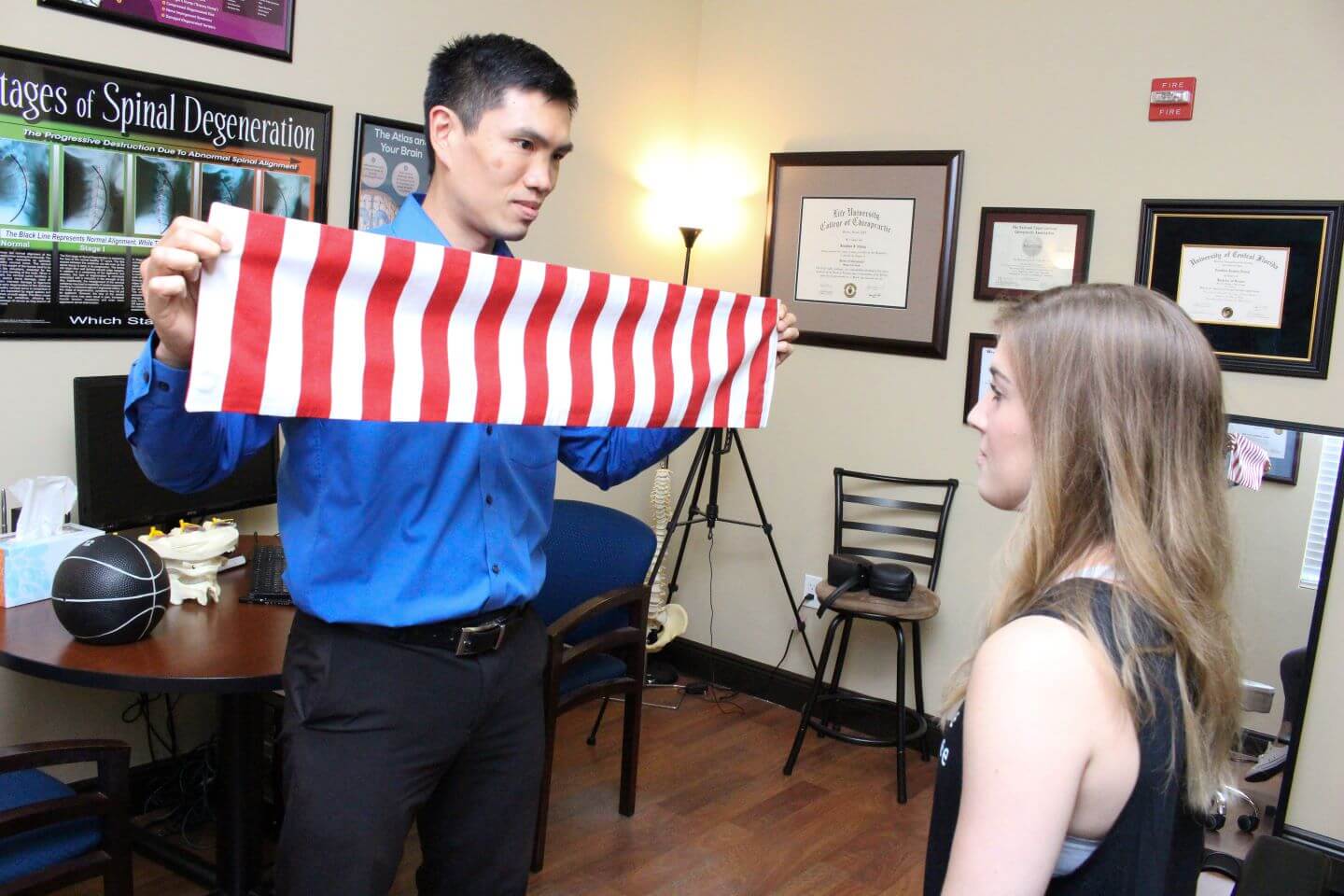What is Functional Neurology?

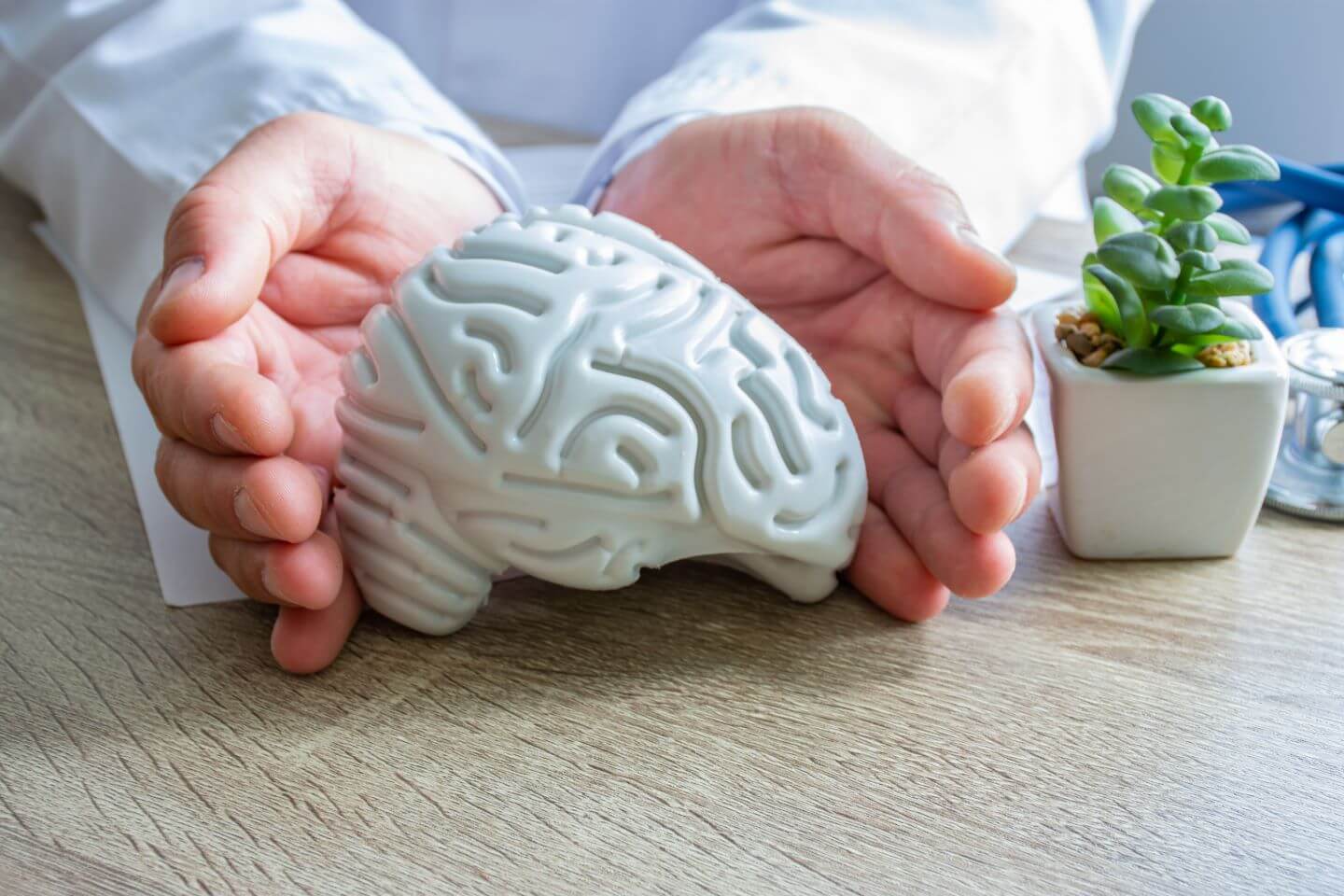
What is Neuroplasticity/Functional Neurology?
When we talk about neuroplasticity, we are harnessing the power of the brain and central nervous system to create meaningful change in order to heal and recover from injury and illness.
As a board certified chiropractic neurologist, Dr. Chung has been trained in the methodologies taught by Dr. Ted Carrick. We use sophisticated diagnostics and therapies to help rehabilitate the brain from a variety of neurological disorders with special interests in:
This is the core of a Chiropractic Neurology paradigm.

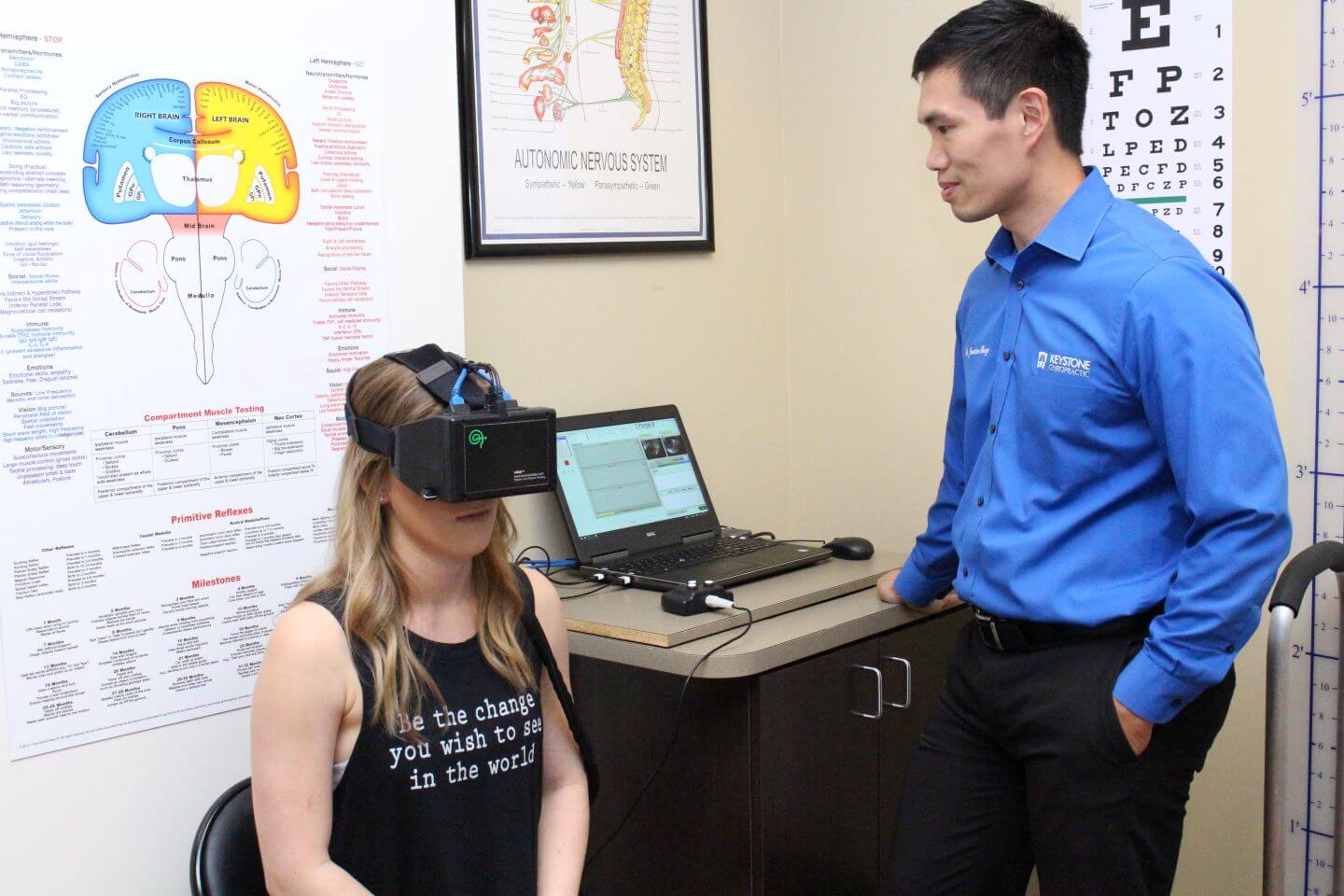
What Will a Functional Neurologist Do?
The core of a functional neurology practice is a thorough neurological exam. During this exam, you may find that we are testing many different aspects of brain function that you may not have had done with other doctors. In particular, we place a large focus on:
Balance | Eye movements | Cranial nerves | Sensory/motor function
It’s not uncommon for your initial exam to take upwards of 2 hours for the first appointment depending on what condition you are presenting with.
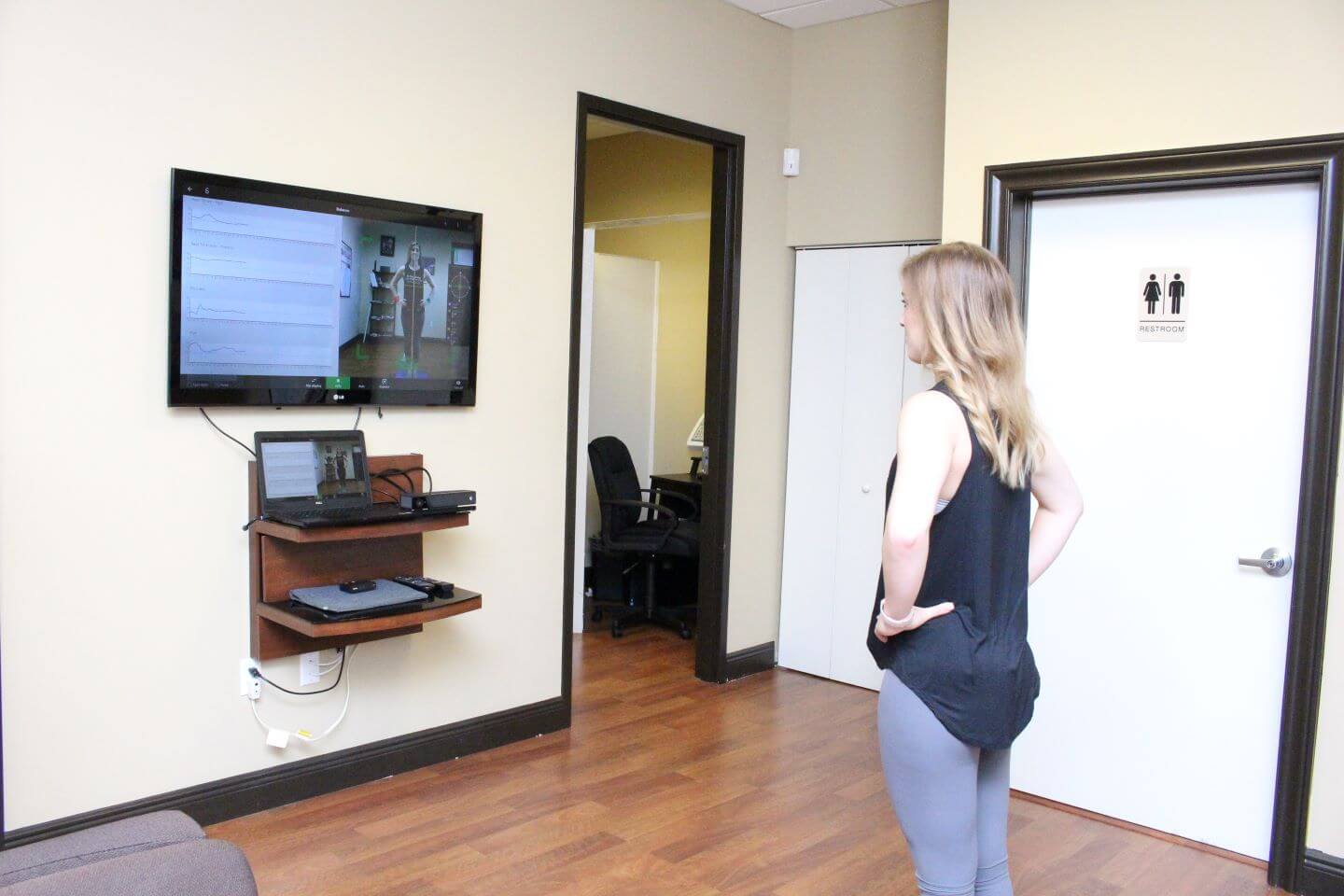
Computerized Balance testing helps us to gauge and monitor your progress with neurorehabilitation.
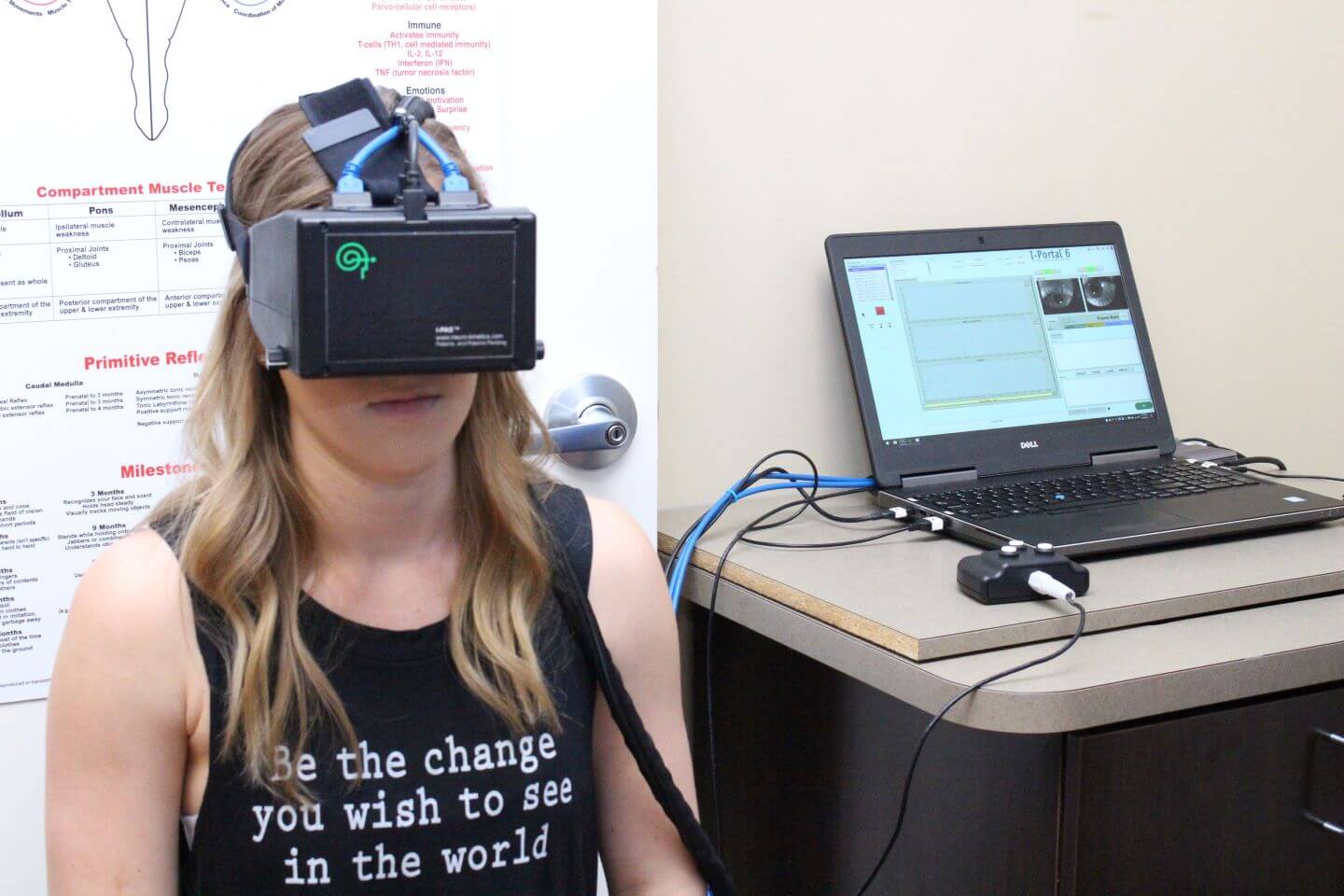
Eye movement testing is one of the important diagnostics in a functional neurology exam.
Functional Neurological Therapies
When it comes to treating patients, there isn’t a one size fits all protocol for any condition. Each patient has a customized regiment of different therapies to help target the function of a specific region of the brain that was identified during the examination. Some of these therapies commonly include:
Vestibular rehabilitation | Eye movement exercises | Hand-Eye Coordination Drills | Movement Training | Non-invasive Vagus Nerve Stimulation | Non-invasive trigeminal nerve stimulation | Low level laser therapy
Even if you have had one or more of these interventions done before, the secret to functional neurology is the way in which these therapies are applied. Our approach means that each patient will have these therapies targeted towards their specific condition and their specific tolerance to therapy.
